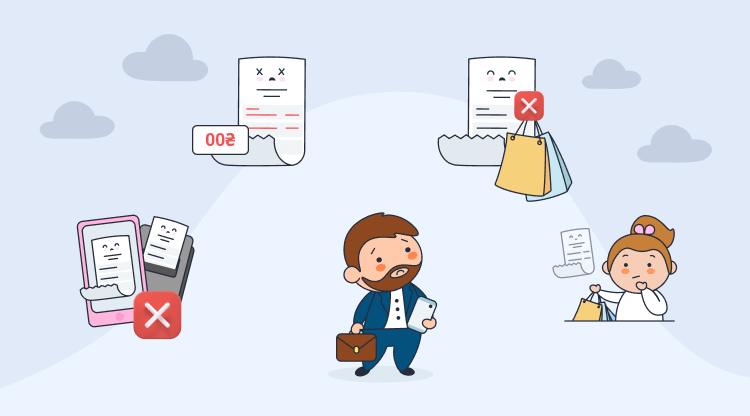On August 1, 2025, the grace period for businesses will end. From now on, the absence of a cash register, payments “past the cash register” or even minor errors in fiscal receipts will have serious consequences.
In this article, we will tell you what rules were in effect before August 1, what will change from the beginning of August, and how entrepreneurs can protect their businesses from financial losses.
What was in effect before August 1?
Until August 1, 2025, certain categories of entrepreneurs were subject to lower fines for violating the requirements for the use of cash registers/PRRO. We are talking about sole proprietors on the single tax system who are not VAT payers and do not sell excisable goods. For them, reduced fines were set, making it easier to adapt to fiscal requirements.
![]()
- For the first violation, the fine was only 25% of the sales value without a fiscal receipt;
- For the second offense, the penalty increased to 50% of the transaction amount.
This period was a transitional stage that allowed businesses to adapt to the new fiscal requirements and implement the PRRO into their daily operations.
What will change in August?
However, starting from August 1, 2025, the grace period will be canceled, and the updated penalties will come into force for all business entities — without exception. The same rules will apply to both sole proprietors under the simplified taxation system and those operating under the general taxation system.
The new fines provide for substantial penalties for violation of the rules of payment transactions:
- 100% of the sales amount — for the first violation detected (e.g., payment without a cash register or a false check);
- 150% of the sales amount — for each subsequent violation.
This means that even a single mistake can result in significant losses, and systematic violations can seriously affect profits or jeopardize the business.
What exactly can you be fined for?
Fines are imposed not only for the complete absence of a fiscal check. Any deviation from the requirements for payment transactions is considered a violation. The Tax Service closely monitors not only the availability of a receipt, but also its correctness and authenticity.
Here are typical cases that may give rise to a fine:
- Making payments without a registered cash register/payment transaction recorder, regardless of the form of payment: cash or bank card;
- Incorrect amount in the check;
- Inaccuracies or missing mandatory details – date, time of the transaction, fiscal number, product name, etc;
- Failure to issue a receipt to the buyer, either in paper or electronic format.

![]() Important: even a minor error in a fiscal receipt or the absence of at least one mandatory requisite makes it invalid.
Important: even a minor error in a fiscal receipt or the absence of at least one mandatory requisite makes it invalid.
The tax authorities equate this with the complete absence of a receipt, and therefore impose the maximum fine as if the payment had not been recorded at all.
Fiscalization — why is it critical?
Compliance with fiscal rules is not only about avoiding fines. It is about fair competition, equal conditions for all entrepreneurs, and respect for the consumer. After all, a receipt is a document that protects both the seller and the buyer. It confirms the fact of the purchase, guarantees the right to return the goods or service the warranty, ensures transparency of payments, and builds trust in the business.
In addition, compliance with accounting rules helps entrepreneurs better control their turnover, analyze financial performance, and plan development. As a result, everyone wins: the state receives taxes, businesses gain stability, and consumers protect their rights.
How to avoid fines?
 To protect your business from unpredictable fines and constant stress, it is important to automate the fiscalization process.
To protect your business from unpredictable fines and constant stress, it is important to automate the fiscalization process.
One of the most convenient ways is to use the proven Vchasno.Kasa service, which will help you comply with legal requirements effortlessly thanks to
- Free fiscalization — in the Basic plan, you can issue up to 300 checks per month for free, which is great for small businesses or those who are just starting out;
- Relevance and security — the service is constantly updated in accordance with the latest changes in legislation, so the form of checks will always be correct and meet the requirements of the State Tax Service;
- Flexible integrations — easily connects to any systems: websites, CRM, online stores, POS terminals and other platforms without complicated settings or additional costs for IT specialists.
Don’t delay — connect a free PRRO today and be confident in your financial security.






